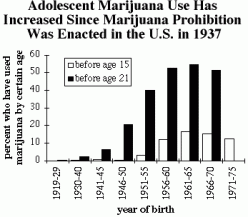Carbon Tax and Fuel Efficiency a Powerful Combo
March 4, 2008
Last week, I unwittingly got into a discussion with the folks from carbontax.org about BC’s new carbon tax. Most of the comments showed strong support for a carbon tax, but I was surprised that there was little support for encouraging fuel efficiencies. The collective mind seemed to think that a carbon tax was the only tool needed to curb carbon emissions. Now I doubt that specific mindset is a good representation of what most people believe, but it got me thinking. I agree a carbon tax is a great strategy, but is it the only one? Where does a carbon-tax fall short? Does encouraging fuel efficiency pick up the loose ends?
Pitfalls of a Carbon Tax
- A carbon tax’s goal is to lower the miles people drive. But what about those who can’t reduce? Commercial truck drivers are one group of carbon-emitters that won’t be changing their habits because of a carbon tax. For transport companies, driving less means less business. Transport services may become a bit more expensive, and truck drivers may not see a pay raise for a while, but carbon emissions won’t drop substantially.
- For any substantial change to happen, consumers need to notice consequences. However, most carbon taxes are modeled the same: taxes start off very small, and are slowly increased over time. By slowly, I mean about 10 cents a gallon slowly. Politicians are wary of pegging the tax too high, but adding an extra 10 cents a gallon tax is almost unnoticeable at today’s volatile gas pumps. For many, paying a bit extra at the pump is more convenient than changing their habits to be more environmentally friendly. It’ll take years before the tax is expensive enough to force a change in the average consumer. Even then, there will always be people rich enough and willing to pay to pollute. A carbon tax is a great long-term strategy, but doesn’t offer any short-term solutions.
 A carbon tax is one sided, as there are two basic ways to change someone’s habits. One way is through negative consequences, the other through positive incentives. Training animals (stern voice vs tasty treat) is one basic example. When it comes to carbon emissions, a carbon tax is a negative consequence. But negative consequences aren’t always enough to cause change. Take a look at marijuana use. Marijuana has been illegal in the US for decades…but the drug’s use hasn’t slowed. A balance of negative consequences and positive incentives is the most effective means of changing habits.
A carbon tax is one sided, as there are two basic ways to change someone’s habits. One way is through negative consequences, the other through positive incentives. Training animals (stern voice vs tasty treat) is one basic example. When it comes to carbon emissions, a carbon tax is a negative consequence. But negative consequences aren’t always enough to cause change. Take a look at marijuana use. Marijuana has been illegal in the US for decades…but the drug’s use hasn’t slowed. A balance of negative consequences and positive incentives is the most effective means of changing habits.
The Benefits of Fuel Efficiency
If a carbon tax is peanut butter, fuel efficiency is the jelly. The two strategies combined provide a balanced plan toward decreasing carbon emissions from fossil fuels.
- Promoting fuel efficiency is the perfect short-term plan because it’s available now! The technology needed to reduce carbon outputs is already sitting on car lots. Burning carbon fuels more efficiently has the same effect as driving less. Right now, the big obstacle is getting fuel efficient vehicles into the hands of drivers. Once that problem is tackled, fuel efficiency could reduce carbon emissions in a very little amount of time.
 Dollar for dollar, fuel efficiency has a bigger effect on consumers. BC’s carbon tax will cost a family about $50 a year. Driving a fuel efficient car could save that in a month or less. My personal situation: If I were to drive the hybrid version of my current auto, I’d save $50 in two weeks. That’s $2600 annually! When it comes to carbon, promoting fuel efficiency is more powerful simply because of the dollar amount attached. Additionally, fuel efficiency provides a positive incentive for emitters to change their habits. Wouldn’t you drive a hybrid if it meant saving hundreds every year?
Dollar for dollar, fuel efficiency has a bigger effect on consumers. BC’s carbon tax will cost a family about $50 a year. Driving a fuel efficient car could save that in a month or less. My personal situation: If I were to drive the hybrid version of my current auto, I’d save $50 in two weeks. That’s $2600 annually! When it comes to carbon, promoting fuel efficiency is more powerful simply because of the dollar amount attached. Additionally, fuel efficiency provides a positive incentive for emitters to change their habits. Wouldn’t you drive a hybrid if it meant saving hundreds every year?
- Fuel efficiency can reach people that a carbon tax can’t. Truck drivers and commuters who can’t bike or bus can still lower their carbon emissions with better fuel efficient cars. The same can be said for people who travel in distances more than what is covered by a carbon-tax. Fuel efficiency works no matter where the fuel is bought and burned.
The bottom line is that both a carbon-tax and fuel efficiency incentives are working toward the same goal. The planet doesn’t care how carbon emissions are lowered, so long as it’s done quickly. Why limit our options? The best strategy is one that uses everything in our toolbox; be it a carbon-tax or promoting fuel efficiency.